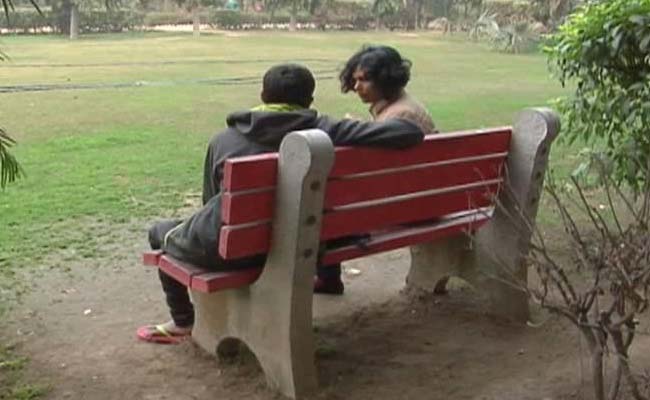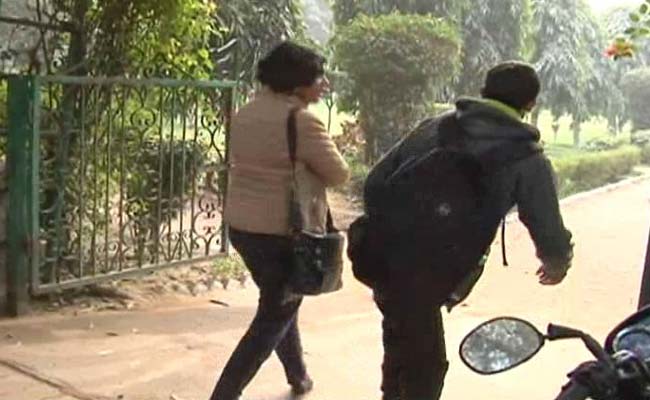The IIT director has ruled out a second chance for Praveen but he still has hope.
Roorkee:
Six months ago, Praveen (name changed) was counted among the country's finest, a member of the elite club of "IIT students".
Today, the 20-year-old spends his days at home, or the Scheduled Tribes Commission or at the doorstep of the lawmaker of his area, fighting to return to the classroom.
He has to choose his time carefully; he can only stand for 10 minutes at a time because of polio.
Praveen was among the 73 students expelled by IIT Roorkee in July for failing their first year exams.
After protests, which were followed by a high court order, 65 were taken back, but Praveen and six others were not because they fell short on credits.
A Dalit rights body, the National Campaign of Dalit Human Rights, has, in a report, called the IIT "Brahminical" or biased towards upper castes, alleging that all seven who were not taken back in were Dalits.

It was 'unconstitutional' to fail them after the first year as many of them came from poor families and needed time and special attention to catch up, the report said.
Praveen claims caste discrimination is a reality even at IIT, which is among the world's most reputed engineering institutes.
The story of Hyderabad university student Rohith Vemula highlights discrimination that is prevalent in many universities across India, he says.
Rohith, a 26-year-old research scholar, hung himself days after being banned from the hostel, cafeteria and other areas on campus for allegedly beating a rival student activist. Students allege that he was a victim of social boycott.
Praveen said: "We are all from Hindi medium schools, we couldn't understand lessons in English and when we told the teachers, they would get angry."
The prejudice, he says, is sometimes subtle and often not - not being included in groups, the emphasis on the surname, being left out of group activities.

"Once my teacher said something against quotas and I objected. He didn't like that and he was quite a senior teacher," says Praveen.
He was in Nainital, six hours from Roorkee, when the college, on the day of the court order, said he had to take an exam.
Praveen's father is a farmer in rural Rajasthan. "All our money was spent in Kota for coaching institutes, I have no other money left to pay for any course," says the student, who has been at home since August.
Speaking to NDTV, IIT Roorkee Director Pradeepta Banerjee denied any caste discrimination. "Two students from the general category were also expelled because they didn't have enough credits," he said.
The director said the college has worked with groups of weaker students for two years and denied any bias in the system. "IIT is all about rigour and unfortunately some students are just not up to the mark," said Mr Banerjee.
The IIT director ruled out a second chance for Praveen but he still has hope. Rameshwar Oraon, chairman of the National Commission for Scheduled Tribes, has summoned the director on Praveen's case.
Today, the 20-year-old spends his days at home, or the Scheduled Tribes Commission or at the doorstep of the lawmaker of his area, fighting to return to the classroom.
He has to choose his time carefully; he can only stand for 10 minutes at a time because of polio.
Praveen was among the 73 students expelled by IIT Roorkee in July for failing their first year exams.
After protests, which were followed by a high court order, 65 were taken back, but Praveen and six others were not because they fell short on credits.
A Dalit rights body, the National Campaign of Dalit Human Rights, has, in a report, called the IIT "Brahminical" or biased towards upper castes, alleging that all seven who were not taken back in were Dalits.

It was 'unconstitutional' to fail them after the first year as many of them came from poor families and needed time and special attention to catch up, the report said.
Praveen claims caste discrimination is a reality even at IIT, which is among the world's most reputed engineering institutes.
The story of Hyderabad university student Rohith Vemula highlights discrimination that is prevalent in many universities across India, he says.
Rohith, a 26-year-old research scholar, hung himself days after being banned from the hostel, cafeteria and other areas on campus for allegedly beating a rival student activist. Students allege that he was a victim of social boycott.
Praveen said: "We are all from Hindi medium schools, we couldn't understand lessons in English and when we told the teachers, they would get angry."
The prejudice, he says, is sometimes subtle and often not - not being included in groups, the emphasis on the surname, being left out of group activities.

"Once my teacher said something against quotas and I objected. He didn't like that and he was quite a senior teacher," says Praveen.
He was in Nainital, six hours from Roorkee, when the college, on the day of the court order, said he had to take an exam.
Praveen's father is a farmer in rural Rajasthan. "All our money was spent in Kota for coaching institutes, I have no other money left to pay for any course," says the student, who has been at home since August.
Speaking to NDTV, IIT Roorkee Director Pradeepta Banerjee denied any caste discrimination. "Two students from the general category were also expelled because they didn't have enough credits," he said.
The director said the college has worked with groups of weaker students for two years and denied any bias in the system. "IIT is all about rigour and unfortunately some students are just not up to the mark," said Mr Banerjee.
The IIT director ruled out a second chance for Praveen but he still has hope. Rameshwar Oraon, chairman of the National Commission for Scheduled Tribes, has summoned the director on Praveen's case.
Track Latest News Live on NDTV.com and get news updates from India and around the world

